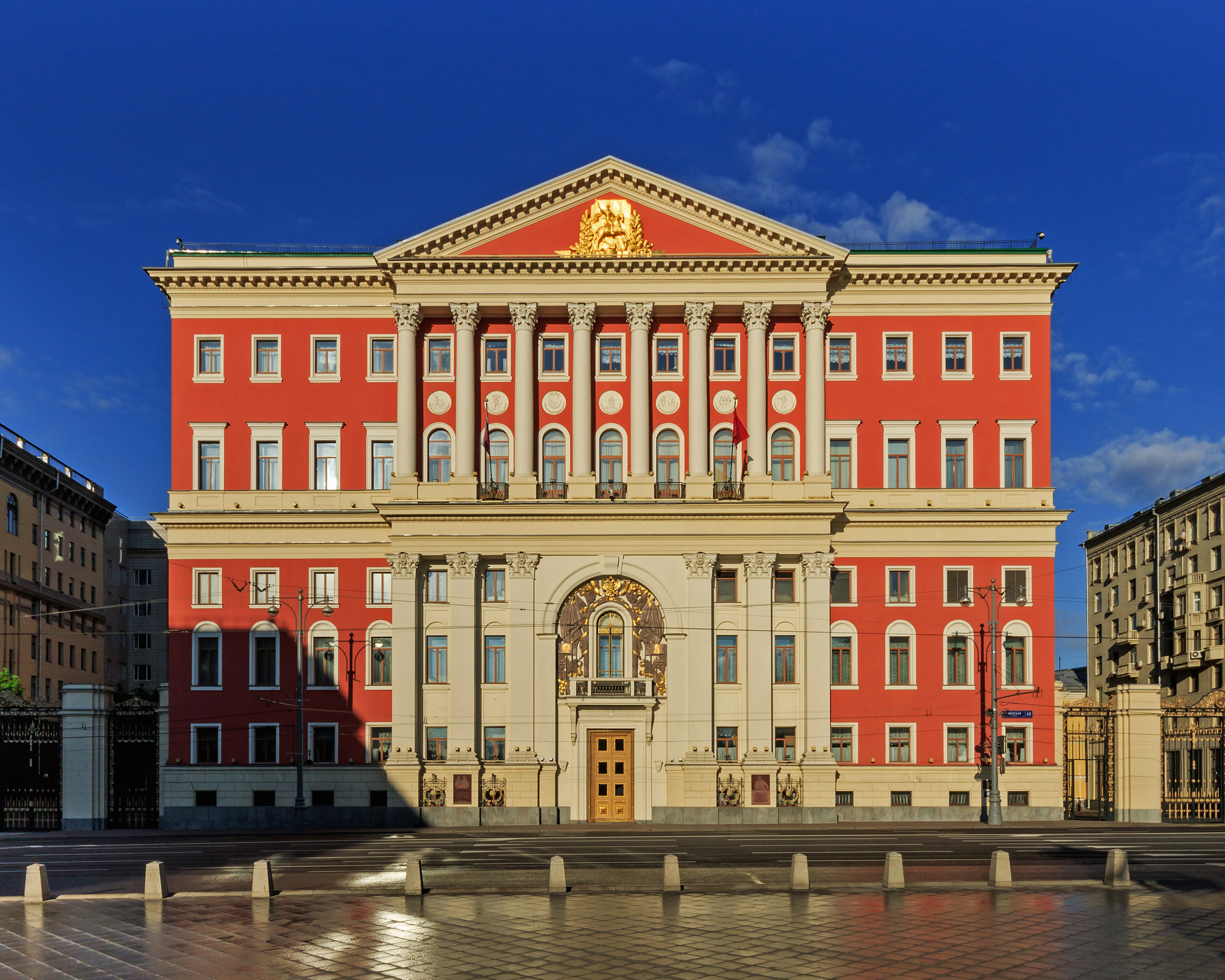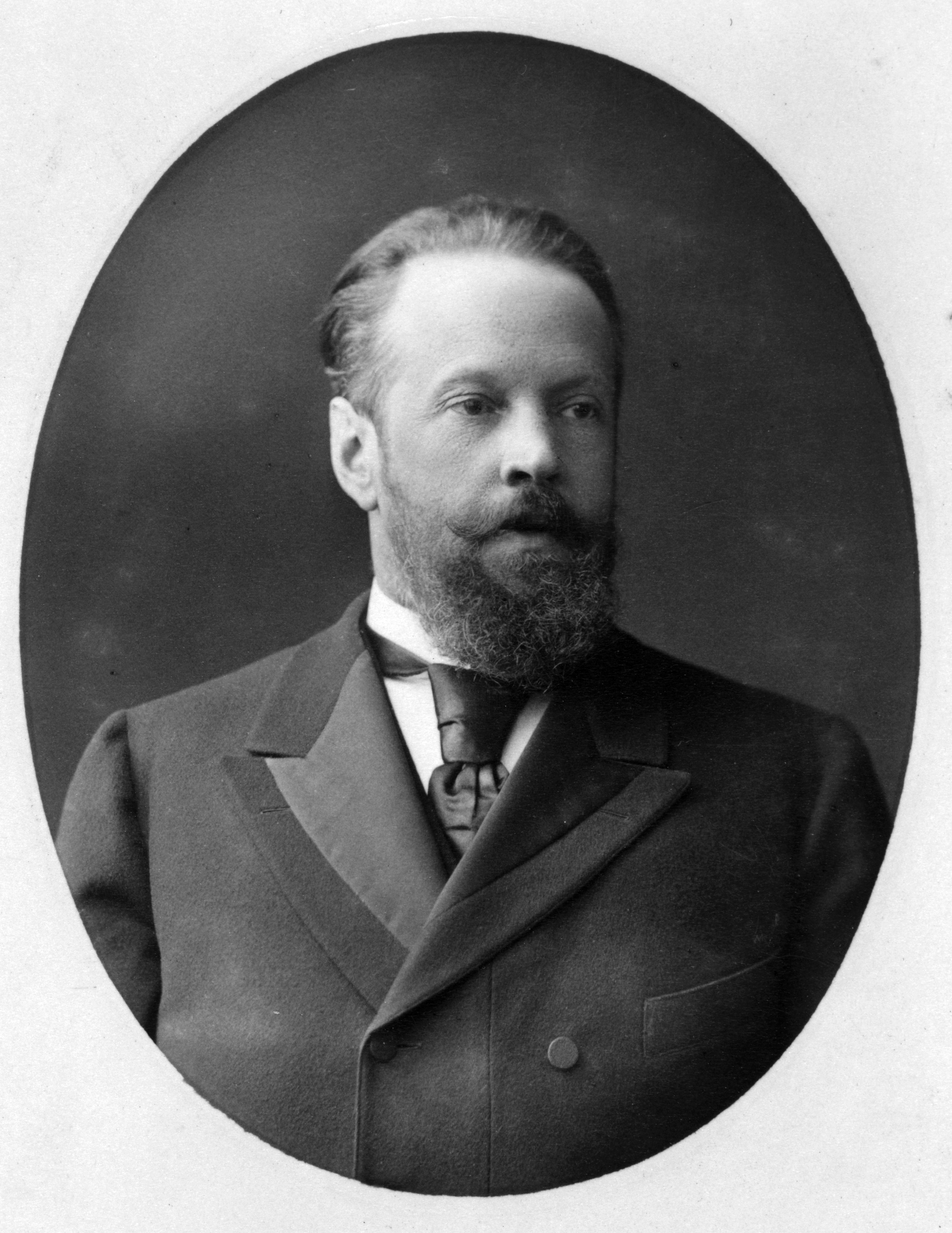|
Sergey Sobyanin
Sergey Semyonovich Sobyanin (russian: link=no, Сергей Семёнович Собянин; born 21 June 1958) is a Russian politician, serving as the 3rd Mayor of Moscow since 21 October 2010. Sobyanin previously served as the Governor of Tyumen Oblast (2001–2005), Head of the presidential administration (2005–2008) and Deputy Prime Minister of Russia (2008–2010 in Vladimir Putin's Second Cabinet). Sobyanin is a member of the ruling United Russia political party, and is elected to its higher governing bodies, current member of presidium of Regional Council of the United Russia in Moscow and the head (political council secretary) of the party's Moscow branch from March 2011 to December 2012. He is considered to be a close ally to Russian billionaire businessman Vladimir Bogdanov, Director General of Surgutneftegas. As the Mayor of Moscow, Sobyanin has gradually relaxed the massive construction projects of his predecessor Yury Luzhkov, for which he has won acclaim for ... [...More Info...] [...Related Items...] OR: [Wikipedia] [Google] [Baidu] |
Mayor Of Moscow
The Mayor of Moscow (russian: Мэр Москвы, Mer Moskvy) is the head and the highest-ranking official of Moscow, who leads the Government of Moscow, the main executive body of the city. Moscow is both a city and separate federal subject, according to the Constitution of Russia. Most federal subjects are headed by governors, but the office of the head of Moscow is called ''Mayor of the City of Moscow'', according to the Charter of the city of Moscow. Sergey Sobyanin, the incumbent Mayor of Moscow, was re-elected for a new term in 2018. Responsibilities The separate office of the ''Premier of the Government of Moscow'' existed in 1991-2001 (Yuri Luzhkov was the only officeholder), but it was merged with the office of Mayor of Moscow. 1999 Moscow mayoral election was the last time when the mayor ran together with the vice-mayor. Mayor of Moscow heads Government of Moscow. The mayor's office administers all city services, public property, police and fire protection, ... [...More Info...] [...Related Items...] OR: [Wikipedia] [Google] [Baidu] |
Engineer
Engineers, as practitioners of engineering, are professionals who invent, design, analyze, build and test machines, complex systems, structures, gadgets and materials to fulfill functional objectives and requirements while considering the limitations imposed by practicality, regulation, safety and cost. "Science is knowledge based on our observed facts and tested truths arranged in an orderly system that can be validated and communicated to other people. Engineering is the creative application of scientific principles used to plan, build, direct, guide, manage, or work on systems to maintain and improve our daily lives." The word ''engineer'' (Latin ) is derived from the Latin words ("to contrive, devise") and ("cleverness"). The foundational qualifications of an engineer typically include a four-year bachelor's degree in an engineering discipline, or in some jurisdictions, a master's degree in an engineering discipline plus four to six years of peer-reviewed professiona ... [...More Info...] [...Related Items...] OR: [Wikipedia] [Google] [Baidu] |
Khanty-Mansi Autonomous Okrug
Khanty-Mansi Autonomous Okrug–Yugra (Russian and Mansi: Ханты-Мансийский автономный округ — Югра, ''Khanty-Mansiysky avtonomny okrug — Yugra;'' Khanty: Хӑнты-Мансийской Aвтономной Округ) or Khantia-Mansia is a federal subject of Russia (an autonomous okrug of Tyumen Oblast). It has a population of 1,532,243 as of the 2010 Census. The peoples native to the region are the Khanty and the Mansi, known collectively as Ob-Ugric people, but today the two groups only constitute 2.1% of the region's population. The local languages, Khanty and Mansi, enjoy special status in the autonomous okrug and along with their distant relative Hungarian are part of the Ugric branch of the Finno-Ugric languages. Russian remains the only official language. In 2012, the majority (51%) of the oil produced in Russia came from Khanty-Mansi Autonomous Okrug, giving the region great economic importance in Russia and the world. It border ... [...More Info...] [...Related Items...] OR: [Wikipedia] [Google] [Baidu] |
Mansi People
The Mansi (Mansi: Мāньси / Мāньси мāхум, ''Māńsi / Māńsi māhum'', ) are a Ugric indigenous people living in Khanty–Mansia, an autonomous okrug within Tyumen Oblast in Russia. In Khanty–Mansia, the Khanty and Mansi languages have co-official status with Russian. The Mansi language is one of the postulated Ugric languages of the Uralic family. The Mansi people were formerly known as the Voguls. Together with the Khanty people, the Mansi are politically represented by the Association to Save Yugra, an organisation founded during Perestroika of the late 1980s. This organisation was among the first regional indigenous associations in Russia. Demographics According to the 2010 census, there were 12,269 Mansi in Russia. History The ancestors of Mansi people populated the areas west of the Urals. Mansi findings have been unearthed in the vicinity of Perm. In the first millennium BC, they migrated to Western Siberia where they assimilated with the nativ ... [...More Info...] [...Related Items...] OR: [Wikipedia] [Google] [Baidu] |
LGBT
' is an initialism that stands for lesbian, gay, bisexual, and transgender. In use since the 1990s, the initialism, as well as some of its common variants, functions as an umbrella term for sexuality and gender identity. The LGBT term is an adaptation of the initialism ', which began to replace the term ''gay'' (or ''gay and lesbian'') in reference to the broader LGBT community beginning in the mid-to-late 1980s. When not inclusive of transgender people, the shorter term LGB is still used instead of LGBT. It may refer to anyone who is non-heterosexual or non-cisgender, instead of exclusively to people who are lesbian, gay, bisexual, or transgender. To recognize this inclusion, a popular variant, ', adds the letter ''Q'' for those who identify as queer or are questioning their sexual or gender identity. The initialisms ''LGBT'' or ''GLBT'' are not agreed to by everyone that they are supposed to include. History of the term The first widely used term, '' homosexual'', ... [...More Info...] [...Related Items...] OR: [Wikipedia] [Google] [Baidu] |
Pride Parade
A pride parade (also known as pride march, pride event, or pride festival) is an outdoor event celebrating lesbian, gay, bisexual, transgender, and queer culture, queer (LGBTQ) social and self-acceptance, achievements, LGBT rights by country or territory, legal rights, and gay pride, pride. The events sometimes also serve as demonstrations for legal rights such as same-sex marriage. Pride events occur in many urban areas in the United States, Canada, Brazil, Mexico, the United Kingdom, Japan, South Korea and Australia. Most occur annually while some take place every June to commemorate the 1969 Stonewall riots in New York City LGBT Pride March, New York City, a pivotal moment in modern LGBT social movements, LGBTQ social movements. The parades seek to create community and honor the history of the movement. In 1970, pride and protest marches were held in Chicago, Los Angeles, New York City, and San Francisco around the first anniversary of Stonewall. The events became annual and ... [...More Info...] [...Related Items...] OR: [Wikipedia] [Google] [Baidu] |
Government Of Moscow
The Government of Moscow (russian: Правительство Москвы) is the highest executive body of state authority of Moscow. The Government of Moscow is headed by the highest official of the city of Moscow, i.e. the Mayor of Moscow. The members of the Government of Moscow are the Mayor of Moscow, the Deputy Mayors of Moscow in the Moscow Government and the Moscow Government ministers. The Government of Moscow issues orders that are signed by the Mayor of Moscow. The Government of Moscow has legal personality. Structure and functioning of the Government of Moscow are established by the law of Moscow, adopted by Moscow City Duma.http://base.garant.ru/998898/ (Charter of Moscow. Article 44) According to the Constitution of the Russian Federation, Moscow is an independent federal subject of the Russian Federation, a so-called city of federal importance. See also * Administrative divisions of Moscow * Moscow City Duma * Charter of the city of Moscow * Federal cities of R ... [...More Info...] [...Related Items...] OR: [Wikipedia] [Google] [Baidu] |
Surgutneftegas
Surgutneftegas ( rus, ПАО «Сургутнефтегаз», p=sʊrɡʊtnʲɪftʲɪˈɡas) is a Russian oil and gas company created by merging several previously state-owned companies owning large oil and gas reserves in Western Siberia. The company's headquarters are located in Surgut, Khanty-Mansi Autonomous Okrug. In the 2020 Forbes Global 2000, Surgutneftgas was ranked as the 251st -largest public company in the world. Surgutneftegas includes a large oil refinery in Kirishi, Leningrad Oblast, operated by the Kirishinefteorgsintez subsidiary. The company is also engaged in fuel retail activities in north-west Russia by cooperating with the Petersburg Fuel Company. Surgutneftegas is also a shareholder of Oneximbank (Объединённый экспортно-импортный банк). From the beginning Surgutneftegas has been led by president and director general Vladimir Bogdanov, who had run the Surgut oil fields since 1983. History Surgutneftegas was created in 1 ... [...More Info...] [...Related Items...] OR: [Wikipedia] [Google] [Baidu] |
Vladimir Bogdanov
Vladimir Leonidovich Bogdanov (russian: Владимир Леонидович Богданов; born 28 May 1951) is a Russian businessman and oil tycoon. Biography and career In 1973 he graduated from Tyumen Industrial Institute with a degree in oil and gas and since then has worked in oil industry in Tyumen Oblast, mainly in Surgutneftegas. Since 1993, he is the President of Surgutneftegas, one of the largest Russian oil companies. In 1978-1980 he occupied leading positions in Yuganskneftegaz. Since 1984 he has been the Director General of Surgutneftegas, which became a private company in 1993. In June 2001 Forbes claimed that Bogdanov was the third wealthiest Russian with $1.6 billion. He has been a member of the Khanty-Mansi legislature since 1996. Bogdanov was also a confidant of Sergey Sobyanin during the successful 2001 Tyumen Oblast Governor election and of Vladimir Putin during the 2004 Russian Presidential Election. In April 2018, the United States imposed sanction ... [...More Info...] [...Related Items...] OR: [Wikipedia] [Google] [Baidu] |
Vladimir Putin's Second Cabinet
Vladimir Putin's Second Cabinet (May 2008 – May 2012) was a cabinet of the government of the Russian Federation following the 2008 Russian presidential election that resulted in the election of Dmitry Medvedev as the third President of Russia. The second President, Vladimir Putin, was appointed to the position of the Prime Minister of Russia. The cabinet followed Viktor Zubkov's Cabinet. In the new cabinet the number of Deputy Prime Ministers increased from five to seven. Viktor Zubkov (former Prime Minister) and Igor Shuvalov were appointed First Deputy Prime Ministers, while Igor Sechin, Sergey Sobyanin, Alexander Zhukov, Sergei Ivanov and Alexei Kudrin received positions of Deputy Prime Ministers. Igor Sechin, former Deputy Chief of the Presidential Administration of Russia is responsible for the industry; Alexei Kudrin is responsible for the finances; and Alexander Zhukov is responsible for the National Priority Projects. [...More Info...] [...Related Items...] OR: [Wikipedia] [Google] [Baidu] |
Prime Minister Of Russia
The chairman of the government of the Russian Federation, also informally known as the prime minister, is the nominal head of government of Russia. Although the post dates back to 1905, its current form was established on 12 December 1993 following the introduction of a new constitution. Due to the central role of the president of Russia in the political system, the activities of the executive branch (including the prime minister) are significantly influenced by the head of state (for example, it is the president who appoints and dismisses the prime minister and other members of the government; the president may chair the meetings of the cabinet and give obligatory orders to the prime minister and other members of the government; the president may also revoke any act of the government). The use of the term ''prime minister'' is strictly informal and is never used in the constitution. Mikhail Mishustin is the current prime minister. He was appointed on 16 January 2020 after ... [...More Info...] [...Related Items...] OR: [Wikipedia] [Google] [Baidu] |



.jpg)


